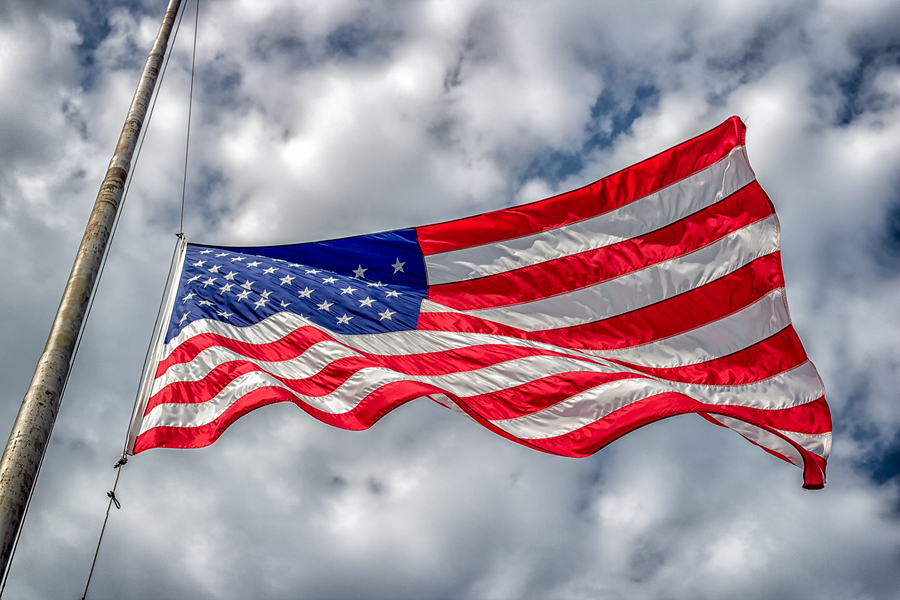 The Defense Base Act provides death benefits to the survivors of contractors killed overseas. Recently, a rocket strike in Iraq killed Mr. Nawres Waleed Hamid, a contractor-linguist for Valiant Integrated Services. News outlets report that a widow and two minor children survived Mr. Hamid. More likely than not, Mr. Hamid’s widow and minor children are entitled to Defense Base Act death benefits.
The Defense Base Act provides death benefits to the survivors of contractors killed overseas. Recently, a rocket strike in Iraq killed Mr. Nawres Waleed Hamid, a contractor-linguist for Valiant Integrated Services. News outlets report that a widow and two minor children survived Mr. Hamid. More likely than not, Mr. Hamid’s widow and minor children are entitled to Defense Base Act death benefits.
What Are Defense Base Act Death Benefits?
The Defense Base Act is an extension of the Longshore and Harbor Workers’ Compensation Act. Therefore, the Longshore’s Act’s statute for the payment of death benefits controls. The relevant statute is 33 U.S.C. 909, often referred to as Section 9.
When a decedent is survived by a widow and minor children, then those children are the preferred class of beneficiaries. In this situation, the pertinent language from Section 9 states:
If the injury causes death, the compensation therefrom shall be known as death benefits and shall be payable in the amount and to or for the benefit of the persons following:
(b) If there be a widow or widower and no child of the deceased to such widow or widower 50 per centum of the average wages of the deceased, during widowhood, or dependent widowerhood, with two years’ compensation in one sum upon remarriage; and if there be a surviving child or children of the deceased, the additional amount of 16 2/3 per centum of such wages for each child; in the case of the death or remarriage of such widow or widower, if there be one surviving child of the deceased employee, such child shall have his compensation increased to 50 per centum of such wages, and if there be more than one surviving child of the deceased employee, to such children, in equal parts, 50 per centum of such wages increased by 16 2/3 per centum of such wages for each child in excess of one: Provided, That the total amount payable shall in no case exceed 66 2/3 per centum of such wages.
What does all of this mean? It means that a surviving widow gets 50% of the decedent’s average weekly wage, and that the surviving children get 16.667% of the decedent’s average weekly wage.
But, There is a Maximum Compensation Rate:
There is one catch, however. There is a statutory cap on the amount of benefits that claimants may receive. Section 6(b)(1) of the Longshore Act provides:
Compensation for disability or death (other than compensation for death required by this Act to be paid in a lump sum) shall not exceed an amount equal to 200 per centum of the applicable national average weekly wage, as determined by the Secretary . . . .
Reading Section 6(b)(1) and Section 9(b) together means that the widow and children’s benefits when added together may not exceed the statutory maximum compensation rate determined by the Secretary. The statutory maximum that applies to a death occurring in Fiscal Year 2020 is $1,560.08.
How Long Are Benefits Owed?
Section 9 provides that death benefits are owed until the surviving spouse remarries. At the time of remarriage, the employer or its insurance carrier pays the surviving spouse two years’ worth of benefits. If the surviving spouse does not remarry, then the employer or its insurance carrier must continue paying benefits.
By right, surviving children receive death benefits until they turn 18. Surviving children may continue receiving death benefits until the age of 23 if they are full-time students. The term “student” is typically thought of as a child attending college or a trade school.
Are Funeral Benefits Available?
Funeral benefits are available. Unfortunately, the Longshore Act has not been updated since 1984. Consequently, a surviving spouse is only entitled to $3,000 for funeral benefits under Section 9(a) of the Longshore Act. The employer or its insurance carrier owe this money in addition to death benefits.
(As an aside, the Consumer Price Index calculator says that $3,000 in 1984 has the same buying power as $7,527.37 in 2019. Survivors are not paid enough for funeral benefits. Employers customarily cover the full burying costs of their fallen employees even though there is no statutory requirement to do so. The Washington Post reports that Valiant Integrated Services paid for Mr. Hamid’s funeral.)
Application of the War Hazards Compensation Act:
When a decedent was killed in an attack by a hostile force or person, the War Hazards Compensation Act applies. The War Hazards Compensation Act is a way for insurance companies to petition the government for reimbursement of all Defense Base Act death benefits paid to the survivors.
This is more than a dollar-for-dollar reimbursement. The insurance company can claim reimbursement for:
- All benefits paid to the survivors.
- A 15% “surcharge” for benefits paid prior to a settlement.
- All settlement money.
- Funeral benefits.
- Attorney’s fees.
- Litigation, expert, or investigation expenses.
Medal for the Defense of Freedom:
Finally, when a contractor is injured or killed overseas, they should receive the Secretary of Defense Medal for the Defense of Freedom. The employer or military needs to nominate the contractor or decedent for the medal. The government may award the medal posthumously–as it should do for Mr. Hamid.
